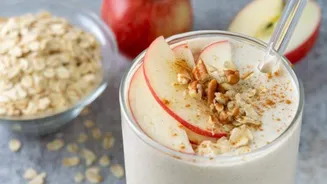Sardinian Lifestyle Insights
The remarkable longevity of Sardinians, especially those residing in the mountainous Barbagia region, has long intrigued researchers. One key to their
longevity is their diet. It is a traditional way of eating, centered on locally sourced, unprocessed foods. This approach is far removed from the modern Western diet. The oldest family in this area, like many others, sticks to a consistent pattern that’s woven into their daily lives. Their diet is far from a fad; it’s a way of life, built on generations of wisdom about what nourishes the body and sustains health over time. This cultural heritage emphasizes the importance of simple, wholesome foods, which is a powerful lesson in how to eat for well-being.
Daily Food Staples
The cornerstone of the Sardinian diet is whole grains, particularly the local variety of durum wheat, used to make their traditional bread, known as 'pane carasau.' This bread is a staple, providing sustained energy throughout the day. Another crucial component is the use of vegetables that grow naturally in the region. These vegetables, seasoned with fresh herbs like rosemary and sage, provide essential vitamins and minerals, boosting overall health. Legumes, such as fava beans and chickpeas, are frequently included. These are excellent sources of protein and fiber, ensuring that they feel fuller and help with digestive health. Additionally, they consume locally produced goat's milk cheese, which is full of probiotics and vitamins. These various elements create a diet that is both nourishing and deeply rooted in the land.
Meat and Protein Intake
Meat consumption is modest, aligning with a tradition of valuing quality over quantity. The diet typically features small portions of meat, usually from free-range animals. This ensures a leaner source of protein. Meat is often reserved for special occasions rather than daily consumption. The emphasis is on consuming meat in moderation. This is coupled with the regular consumption of fish, rich in omega-3 fatty acids, crucial for heart health and brain function. Furthermore, the Sardinian diet incorporates eggs from pastured chickens, which are rich in nutrients. This approach reflects a deep understanding of balanced nutrition, where animal products are integrated responsibly alongside plant-based foods, all supporting a healthy lifestyle.
The Role of Wine
A glass of Cannonau wine, a local red wine with high antioxidant levels, often accompanies meals. This wine, consumed in moderation, is considered an integral part of their lifestyle, not just a beverage. It is rich in polyphenols, which can combat oxidative stress and promote cardiovascular health. The practice of drinking a small amount of wine with meals also promotes a sense of community and enjoyment, which is also an important element of the Sardinian way of life. The emphasis is on enjoying life’s simple pleasures in a balanced way. This aspect reveals how their lifestyle blends nutrition with social well-being, contributing significantly to their overall health.
Beyond Diet: Lifestyle
The Sardinian secret is not solely about food; it's a holistic approach to life. Physical activity is a natural part of their daily routine. The mountainous terrain requires them to move and walk frequently. Regular physical activity keeps their bodies active and supports their health. Strong social connections and a sense of community are highly valued. Close-knit families and social gatherings reduce stress and provide emotional support. These social interactions are just as important as the food itself. This combination of diet, activity, and social bonds creates a lifestyle that promotes physical and mental well-being. This is a model that balances nutrition with all the essential elements needed for a healthy, long life.















